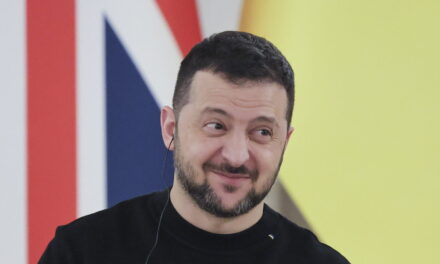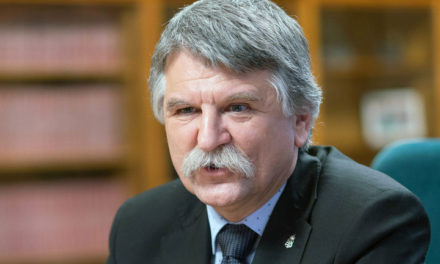László György, the Secretary of State responsible for innovation and higher education at the Ministry of Culture and Innovation demonstrated his speech at the 1st National Regulatory Conference with an invisible pendulum in his hand.
The politician explained the reason for the unusual "tool use" on his social media page. According to him: the theses of today's modern economics did not ossify into dogmas during a crisis, but during times of peace and economic growth. This is one of the main sources of our troubles.
He continued: Back in the 1990s, Dani Rodrik, professor at Harvard University, In a free interpretation, economics is not a science, but a faith based on theses. Economists tend to believe in the omnipotence of the market at certain times. Therefore, decision-makers are encouraged to adopt rules that allow too much space for private interests, and private interests destroy market conditions in the absence of adequate regulation. As soon as the theological foundations fail, economists suddenly start yearning for the intervention of the acting state.
The goal is therefore to keep the pendulum in a state of equilibrium - stated László György and added:
According to Adam Smith, the father of classical economics, if there is competition, i.e. there is a market and the driving force of self-interest works, then the invisible hand guides us in the direction of the common good. There is, of course, self-interest. But is there a market? Do the conditions for market competition exist? - he asks the question, to which he then gives the answer: Well, they rarely or almost never. That is why state regulatory activity is needed.
The task of the regulatory authority, economic policy and economic strategy is to maximize local added value.
According to László György, this was best achieved in practice in Hungary after 2010 with the unorthodox economic policy interventions, when we levied a special tax on companies operating in oligopoly and monopoly, i.e. limited markets, and gave the resulting income to working families with children.
Every year, we regroup more than HUF 1,000 billion in this way through personal income tax reductions, social contribution tax reductions, family allowances from special taxes and interest savings, said the politician.
He added that economics is contextual. In Hungary, handling the crisis does not mean "ad hoc haste".
Today, the world's leading economists are also proposing taxes on rent-seeking global companies and the distribution of the revenues received from them among working families. Furthermore, the much-criticized overhead reduction is being introduced almost everywhere in Europe - from Germany to Austria, England and even Spain.
The Hungarians were not right again, but they were right - László György concluded his speech at the 1st National Regulatory Conference.
Source: Magyar Hírlap
Featured image: Tamás Gyurkovits/MCC













